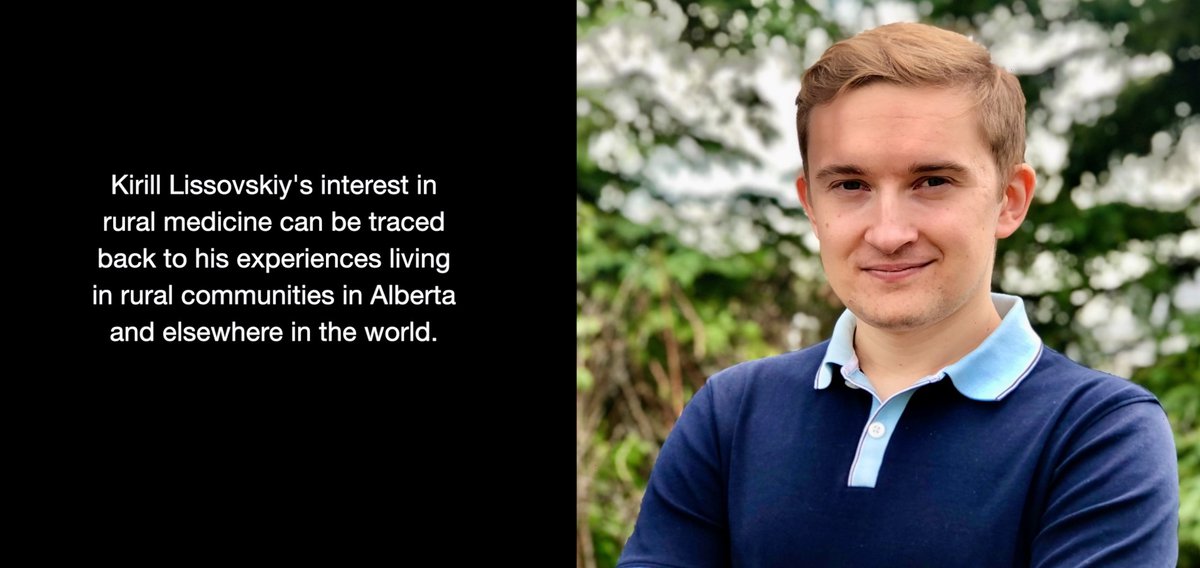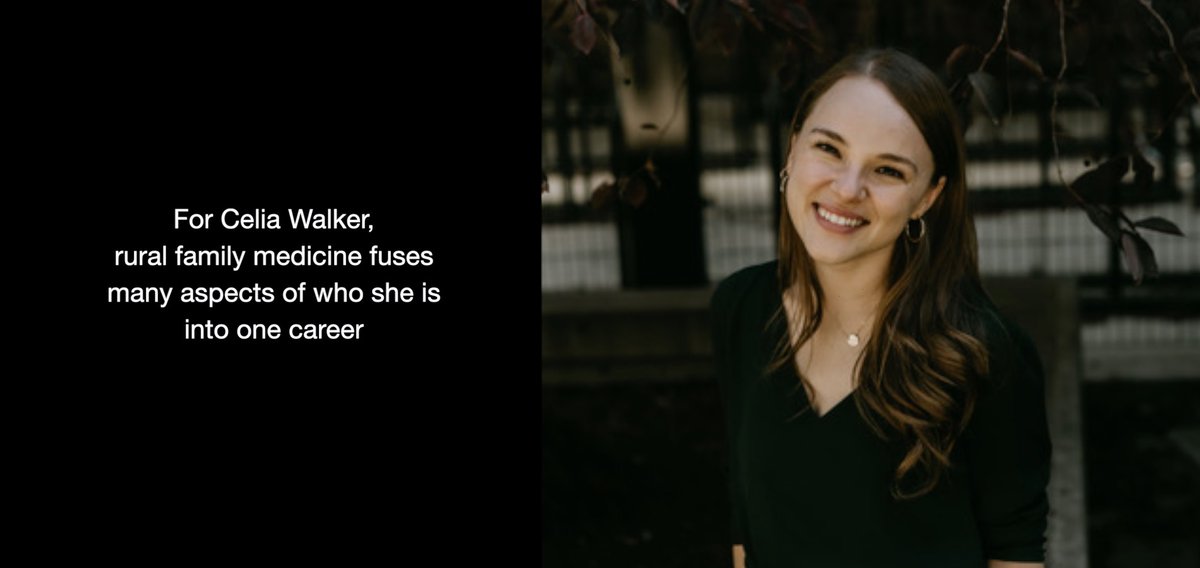The Tarrant Scholarship is awarded to two third-year medical students, one from the University of Alberta and one from the University of Calgary, who demonstrate strong interest in studying and developing a career in rural medicine. The Alberta Medical Association’s Section of Rural Medicine bestows the award annually.
Over the past 18 years, the Tarrant Scholarship has been awarded to 45 worthy, third-year Alberta medical students. This translates to over $465,000 in scholarship funds being awarded. Many of our scholarship recipients have gone on to practice medicine in rural communities throughout our province and elsewhere. And that really is the ultimate goal and purpose of the Tarrant Scholarship – recognizing and supporting a medical student’s commitment to helping and caring for the people who live and work in rural communities in our province.
The namesake of our scholarship, Dr. Michael Tarrant, was a family physician from Calgary who recognized the uniqueness of rural medicine. He was also concerned about rural physician shortages and he believed that extra effort is required to ensure that rural Albertans have access to quality health care. He certainly worked tirelessly in support of this cause.
This year’s worthy recipients are Rodger Craig from the U of A and Chantal Serwatkewich from the U of C. They accepted their 2021 Tarrant Scholarships at a virtual presentation on November 2, 2021.
Kirill Lissovskiy, University of Alberta

Kirill Lissovskiy is a third-year medical student at the University of Alberta. He was born in Kazakhstan and lived there until he immigrated with his parents to Canada. The family settled in Drayton Valley where his parents worked in the oilfield and in banking.
Kirill was very involved with his community during high school. Through the Royal Canadian Air Cadets, he taught courses on leadership and effective speaking, helped with community events, raised awareness for veterans’ affairs and represented Canada (as well as Alberta and Drayton Valley) internationally as part of an exchange program. He also volunteered at the local continuing care facility as a patient care assistant, which ignited his interest in health care.
Prior to medical school, Kirill attended the University of Alberta and earned a bachelor’s degree in biological sciences and a master’s degree in public health. His education in these fields led him to work with government and not-for-profit organizations on community-centered initiatives, including the Fort McMurray wildfire recovery project.
Kirill’s interest in rural medicine can be traced back to his experiences living in rural communities in Alberta and elsewhere in the world. In addition to his time in Drayton Valley, he spent a number of childhood summers in rural Siberia with his grandparents. He finds that living in a smaller rural setting allows him to be more engaged in the community, which is one of the reasons he is excited about becoming a rural physician.
During his first two years of medical school, Kirill participated in shadowing opportunities in Sundre and Camrose and completed a clinical elective in Grande Prairie. Kirill is excited by the prospect of practicing rural family medicine due to the broad scope of practice and the opportunity to build long-lasting patient-physician relationships.
Kirill will spend the next year in Edson as part of the Integrated Community Clerkship (ICC) program. He will work principally at the local clinic (Edson Medical Centre) and hospital (Edson Healthcare Centre) and spend time with allied health care practitioners. After finishing medical school, he hopes to work in northern Alberta with the goal of incorporating his public health and health promotion experience into his medical practice.
Celia Walker, University of Calgary

Celia Walker is a third-year medical student at the University of Calgary, completing her training between her hometown of Calgary and her longitudinal integrated clerkship (UCLIC) rural site, Rocky Mountain House. For Celia, rural family medicine fuses many aspects of who she is into one career.
Celia spent most of her childhood summers in her mother’s hometown, a small community of roughly 500 people in Cape Breton, Nova Scotia. Although she was raised in a big city, Celia always felt most at home in that small east coast village. Her childhood connection to the east coast lead Celia back to Nova Scotia for her undergraduate degree, where she completed her BSc in biology and bioethics at Dalhousie University.
Celia possesses a perpetual hunger for adventure and self-discovery that has led her to work, study and explore around the globe during her undergraduate and master’s degrees. Celia’s desire for adventure and her interest in the intersection between ethics, medicine and local and global health inequities, led her to conduct her MSc in global health at McMaster University following her undergrad. That formative year took Celia from Hamilton, Ontario, to the Netherlands, from India to Botswana, and encouraged her to reflect further on the sociocultural and environmental drivers of global health disparities. Celia came to realize that Canada – especially rural, northern and remote communities – is not immune to the greatest global health challenges of the 21st century. A specific interest for Celia is the health impacts of climate change.
This realization inspired Celia’s move to Prince George, in northern British Columbia, following the completion of her MSc; there she worked on a variety of research projects. Her research included analyzing the health and economic impacts of urgent air transfers of children with respiratory infections and evaluating predictors of hospital readmissions and deaths of children with infectious diseases living in northern rural and remote BC and the Yukon. Soon after, Celia decided to apply to medical school to be able to serve, on the ground, the communities she was researching.
Celia’s deep love for the natural world and her reflection on the interconnections between global health, the climate crisis, industry and the environment, stoked her passion for climate health advocacy. She has been a member of the Canadian Association of Physicians for the Environment for five years. She pioneered a film project on the health impacts of climate change in Canada (Climate Guides) and undertook a project to integrate planetary health education into curricula (Climate Wise) at U of C, where she was the president of the Environmental Health Interest Group and held the position of global health advocate and climate change officer for her class. She currently holds the role of co-chair at the Canadian Federation of Medical Students Health and the Environment Adaptive Response Taskforce (CFMS-HEART).
Celia’s work on climate and planetary health has further stoked her interest in rural medicine. She says that whether we are discussing emergency natural disaster preparedness in small communities, food insecurity due to drought, access to culturally appropriate foods for Indigenous Peoples, or asthma exacerbations from wildfires, it is undeniable how inextricably intertwined rural health and rural communities’ close connections to the land are to the changing climate.
While keeping up with her studies and advocating for climate health education, Celia spent her first year of medical school jumping on any opportunity to grow her exposure to rural medicine, shadowing physicians in multiple rural communities around Alberta. It was spending multiple months in Rocky Mountain House, however, that solidified her desire to pursue a career in rural family medicine. Celia has been deeply enjoying the diversity of learning in a rural environment including significant exposure to emergency medicine, obstetrics and Indigenous health on the surrounding reserves. The longitudinal nature of the UCLIC program has made her realize how much she values the intimate connections a physician can develop with patients in a small community. The diversity of practice also speaks to Celia, as she loves being able to meet patients where they are, whether that is at their home on the reserve, in the clinic, delivering a baby or in the emergency department.
Celia sees herself as a full-service family physician who is able to provide what is needed in whatever community she and her partner, a marine biologist PhD, decide to settle down in. She hopes to match to a family medicine program with either a northern health component or a program on either the East or West coast of Canada that allows Celia to develop her skills in global health. Celia’s goals after a family medicine residency will be to continue her training with a +1 in emergency medicine.
When Celia isn’t working in the hospital, attending HEART Zoom meetings or sipping cold coffee from her Yeti mug in a doctor’s lounge, she (most ideally) can be found in a tent on a mountain; on a yoga mat; with her partner and friends on a local Victoria, BC, beach; or galloping down a hiking trail.
